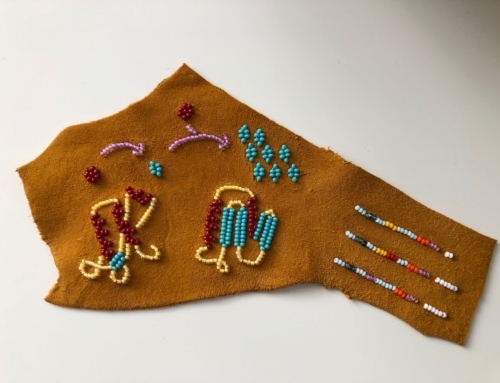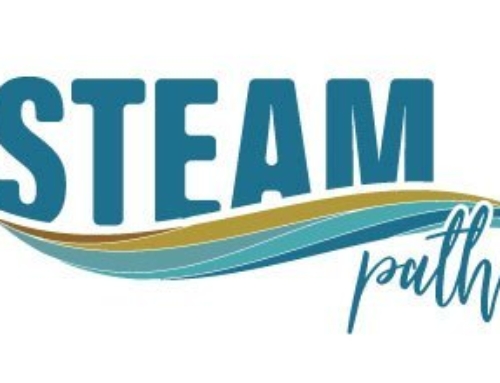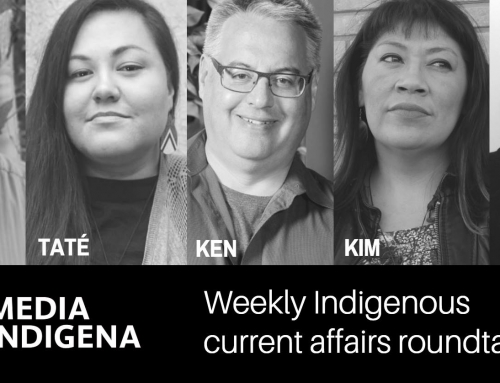
Description
A weekly roundtable about Indigenous issues and events in Canada and beyond. Hosted by Rick Harp.
The Host: Rick Harp
Born and raised in Winnipeg, Manitoba, a city located both at the heart of the continent and smack dab in the middle of nowhere, Rick Harp is a citizen of the Peter Ballantyne Cree Nation in what’s now known as northern Saskatchewan. While pursuing his BA as a student of political science at Carleton University in Ottawa, Rick got bit hard by the radio bug at the campus and community station, CKCU-FM. Thus begat a twenty-plus-year career in broadcast media, including national and regional stints at CBC Radio, the Aboriginal Peoples Television Network (APTN), and NCI-FM. A former Artistic/Managing Director of the Winnipeg Aboriginal Film Festival, he is a co-founder and president of the INDIGENA Creative Group (MI’s parent company).
In 2010, Rick was eager to chart his own course, launching the online magazine MEDIA INDIGENA, whose roster of original Indigenous voices offered an intelligent alternative to mainstream perspectives. Although the site’s output has ebbed and flowed over the years, its recent re-invigoration as a weekly podcast heralds a return to form as a lively, active source of ‘Interactive Indigenous Insight.’
Taté Walker
Taté Walker is a Lakota storyteller, feminist activist, blogger, photographer, and social services professional who promotes cultural competency and inclusion for professionals in the workplace. She received her Bachelor of Arts in English-Communications from Fort Lewis College in Durango, Colo., in 2004, and her Masters of Science in Administration from the University of South Dakota in 2013.
Her experience includes more than 12 years as a professional multimedia journalist. She is the editor of Native Peoples magazine, which provides an international audience with fair and accurate representations of Indigenous perspectives and experiences in ways that educate, entertain and empower through journalistic storytelling.She also spent eight years within the social services sector in the fields of juvenile justice, civil rights, and youth and family advocacy. This, combined with her personal, professional and academic research in the areas of Native American identity and stereotypes, poverty, health, and sexuality, make Taté a dynamic and powerful speaker.Taté’s writings can be found at her blog Righting Red. To read her Everyday Feminism articles, click here. Location: Phoenix, Arizona
May 2019
Ep. 163: Australian government tries to deport Indigenous people as “aliens”
Support us This week: State of Alienation. It was a country that didn’t even exist 120 years ago. Yet, today, authorities in Australia are convinced they’re somehow justified in declaring [...]
Ep. 160: All White History is Revisionist History
Support us This week: How a lake in the States lost its Indigenous name, re-gained it, only to potentially lose it again because of a Minnesota court decision. Join us [...]
January 2019
Ep. 148: War on the Wet’suwet’en?
This week... Another BC battlefront: Why Wet'suwet'en resistance to the Coastal Gas Link pipeline project is—and isn’t—so complicated to understand. Revitalizing MEDIA INDIGENA: Why us taking a break after 147 consecutive weeks is the best guarantee of many more episodes to come.
November 2018
Ep. 142: Inflaming the Issue: Could fire-ridden California have benefitted from indigenous knowledge
1. Fighting fire with fire? Why some say the massive blazes ripping across parts of California did not have to be so furious or fatal, if only the state would listen more to Indigenous peoples. 2. Cultural linchpin or not-so-scenic buzzkill? Why some Ontario cottagers ain’t so 'wild' about the return of rice to the region. 3. Media muzzle? A southern U.S. tribe suddenly takes back the press protections it had only put in place three years prior.
Ep. 140: Unpacking the Colonial Foundations of Philanthropy
THIS WEEK... What’s in a name? Everything, for Indigenous families hoping to reclaim their people's traditional naming practices. What gives with philanthropy? The author of a new book on the subject says it’s time to decolonize the sector. Grief over Greyhound: What will First Nations who once relied on the bus service do now that it's ceased operations in western Canada?



